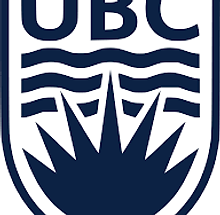Land acknowledgement
Silva21 acknowledges the ongoing research conducted on the traditional, ancestral, and unceded territories of Indigenous communities that has been their home for countless generations. We acknowledge the diverse Indigenous cultures, languages and histories that have shaped and continue to enrich these lands. We pay respects to the Elders, both past and present, and extend our gratitude to the Indigenous communities who have stewarded the forests and lands upon which we live, work and play.
We acknowledge that the effects of colonization, past and ongoing, have had profound impacts on Indigenous peoples and their relationship with the land. We are committed to learning from - and working in partnership with - First Nations communities to promote the principles of reconciliation, respect, and collaboration in the field of forestry.
We invite all of the Silva21 community to reflect on the vital role that Indigenous knowledge, perspectives, and voices play in shaping our understanding of the forest ecosystem and sustainable forest management. Join us in committing to ongoing efforts of building meaningful relationships with Indigenous communities, acknowledging their rights and sovereignty, and integrating Indigenous knowledge and perspectives into our research and practices in a future of reconciliation, equity, and sustainability.
Land acknowledgement by university
University of British Columbia
UBC Vancouver is located on the traditional, ancestral, and unceded territory of the Musqueam people. The land it is situated on has always been a place of learning for the Musqueam, who for millennia have passed on their culture, history, and traditions from one generation to the next on this site.
University of Alberta
The University of Alberta, its buildings, labs, and research stations are primarily located on the traditional territory of Cree, Blackfoot, Métis, Nakota Sioux, Iroquois, Dene, and Ojibway/Saulteaux/Anishinaabe nations; lands that are now known as part of Treaties 6, 7, and 8 and homeland of the Métis. The University of Alberta respects the sovereignty, lands, histories, languages, knowledge systems, and cultures of First Nations, Métis and Inuit nations.
Université Laval
Dans un esprit d’amitié et de solidarité, l’Université Laval rend hommage aux Premiers Peuples de ces lieux. Étant à la croisée du Niowentsïo du peuple Huron-Wendat, du Ndakina du peuple Wabanaki, du Nitassinan du peuple Innu, du Nitaskinan du peuple Atikmekw et du Wolastokuk Malécite, nous honorons nos relations les uns avec les autres.
Learn more about the land where you live, work and play
Use the interactive map at www.native-land.ca to learn more about First Nations territories, languages and treaties that exist where you live, work and play and around the world.





